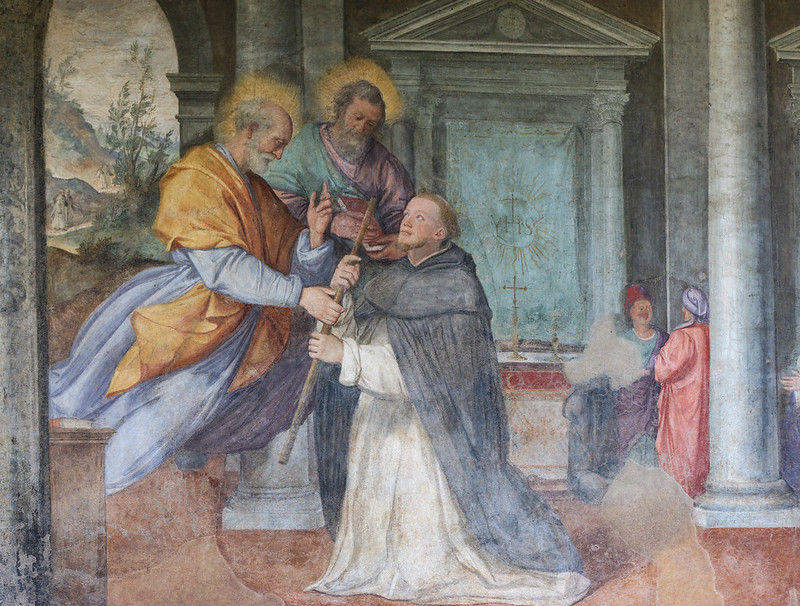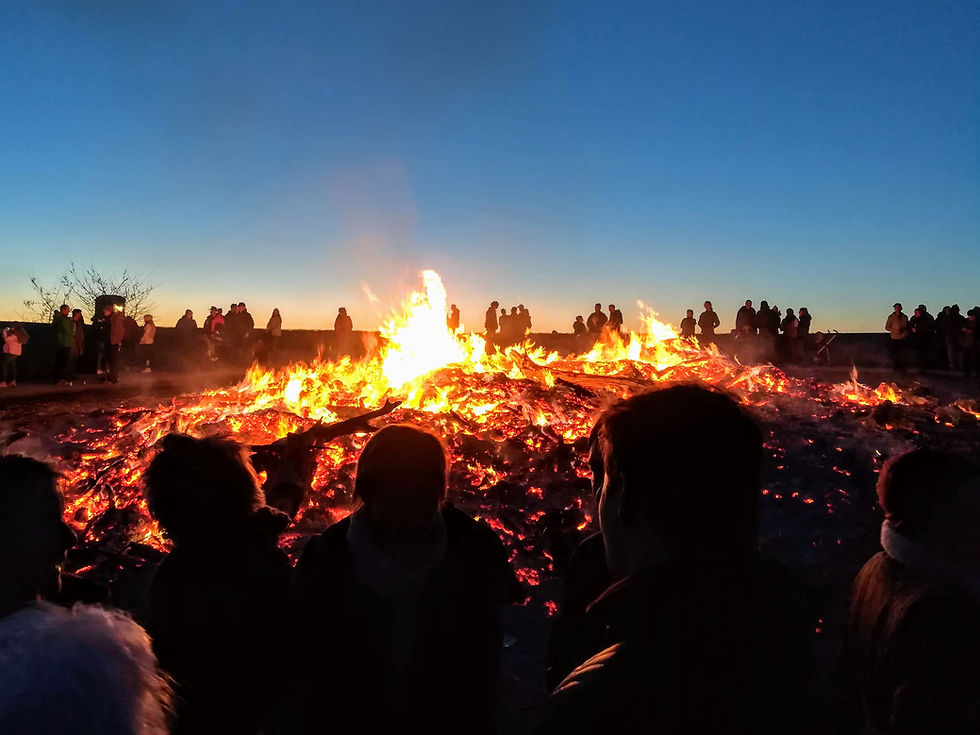Festal Homily, 3 August 2025 - Fr Paul Rowse, OP
- paulrowse
- Aug 3, 2025
- 4 min read
The year is 1215, and the city of Rome is all abuzz. 1215 wasn’t a jubilee year like this one, but there was a celebration of sorts going on: that’s the year that Pope Innocent III began the Fourth Lateran Council. His opening sermons told the bishops what was on his mind: how to recover the Holy Land and how to handle the heretics.
Councils aren’t always peaceful gatherings; often they’re the occasion for intense contests between factions. That’s the strange thing about church meetings: there’s usually a winner and a loser. So, we don’t want to have too many of them: only as many as necessary to get the work back on track.
Lateran IV was no different. We’re told two French nobleman sent their thugs to Rome to go at each other over a parcel of land. But for all the controversy, Lateran IV was also the most representative council of the period: most of the world’s bishops were joined by some kings and many nobles, and they all descended on the Eternal City with their entourages. And so, for more than a year, the Council made St John Lateran a very busy church indeed.
And then our Dominic arrives in Rome, the first of a number of visits he made. His contemporaries described him as a slender Spaniard of middle height with reddish hair. We’re told he never went bald but always kept the monastic tonsure. So you have to imagine that the sign St Dominic needed a haircut was when he had a few colourful sprouts coming out the top!
In Rome, St Dominic managed to align himself with the powerful Cardinal Ugolino di Conti, later known to the Church as Pope Gregory IX. We should call Ugolino the godfather of the Order of Preachers, for it is he who had the access to the Pope and the influence over the Papal outbox needed to obtain all that Dominic needed. For the decade prior, Dominic had preached through the south of France. He wasn’t about the recovery of the Holy Land, but he was all about the Cathar heretics. So, a small preaching and reconciling enterprise had been begun by a man with a great read on the Church. And that made him the kind of man the Pope would support.
Having made his petition to the Pope to have his band of friars recognised, Dominic goes off to make another of his long night vigils. But in which church would he pray? The Lateran Cathedral was a circus, and probably so was the nearby St Mary Major. St Paul’s Outside the Walls was too far out. It would be St Peter’s at the Vatican.

There, in the old St Peter’s, the one built by the great Constantine, St Dominic begins to pray. And he has a vision. Two apostles step toward him; they are Peter and Paul. St Paul hands him a book, the Gospel, and St Peter, a staff. They tell him to go and preach: “Go and preach, for this is the work God has chosen you to do.” And so he does.
Dominic leaves Rome and returns to the work of preaching and reconciling. The following year, the new pope gave his approval to the Order.
There are two points for us to take away. The first is that St Dominic’s work didn’t change all that much before and after papal approval. That approval was needed, sure, but it came as a confirmation, a recognition that the Dominican friars were doing what the Church needs and wants. This is Peter’s role: to strengthen the brothers. Good popes aren’t necessarily innovators, but all good popes are good gatekeepers. And Dominic’s popes saw the good he was doing and gave it their protection. This is part of how we spot a religious charism, a new outpouring of the Holy Spirit: in all faith and charity, we try something we’re moved to do and submit the work to the Church for her judgment. If it’s good, the differences in the work before and after approval will be minimal. But it’s not only the Church that wants Dominican preaching.
This leads us to the second point: heaven wants Dominican preaching too. Two Apostles were sent to Dominic that night to get him moving again. The preaching is the work God wants, not waiting around in antechambers for documents. Now that we have all the approvals needed, we have to consider our own way forward with Dominic.
Unlike Dominic, we don’t have the benefit of Christendom, that European-style of Christian rule. Successive governments here will demonstrate that by their pro-death legislation and the baseless pursuit of the innocent. Indeed, there seems to be a certain Christianity fatigue: we have neighbours who are tired of the Christian message as they have encountered it.
Like never before, the Gospel needs to be preached with freshness and vigor. There are souls to be reconciled to God and his Church through kindness and witness. The Person of Christ is always attractive, even if certain of his followers make him appear not to be. So, we ask St Dominic to inspire our preaching and reconciling, and make us put the good of souls first, so that the Truth of Jesus Christ may be known and cherished by all.
Fr Paul Rowse, OP
Parish Priest


